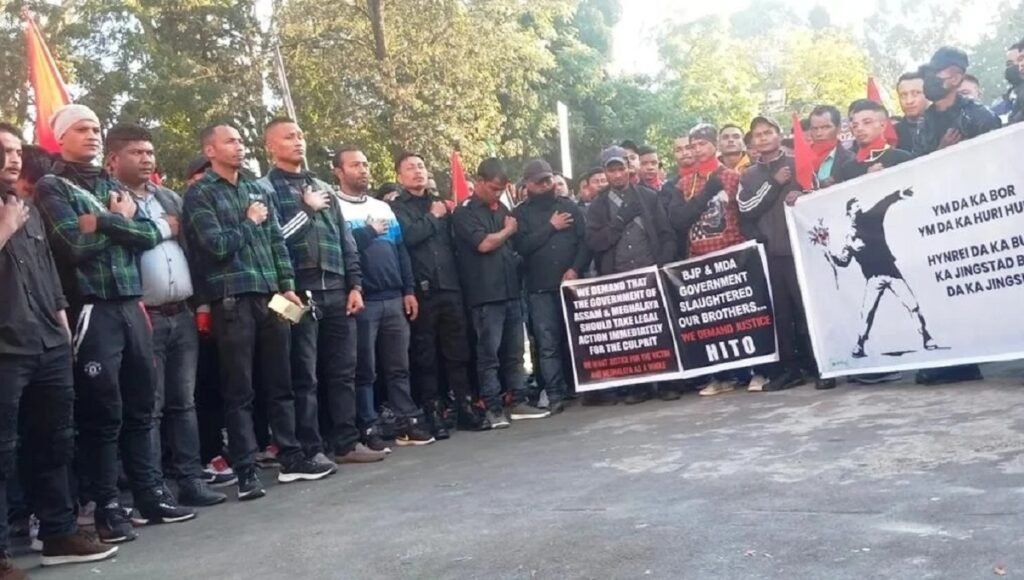
The Hynniewtrep Integrated Territorial Organization (HITO) on Sunday reignited the debate over the constitutional recognition of Khasi and Jaiñtia rights by hoisting the Khasi State flag at Lum Shillong. The symbolic act coincided with the 77th anniversary of the Instrument of Accession and Annexed Agreement signed on August 17, 1948, between the Khasi states and the Union of India.
HITO, a socio-political body formed in 2021, marked the day by submitting a memorandum to Meghalaya Governor C. H. Vijayashankar, urging his direct intervention to ensure that long-pending directives of the National Commission for Scheduled Tribes (NCST) are acted upon. The NCST, in its recommendations issued in April 2012 and again in late 2014, had stressed that treaty agreements signed by Khasi states should be incorporated into the Constitution as a special Article. The Commission noted that such recognition would safeguard the rights, customs, and historical identity of the Khasi and Jaiñtia people.
The organization reminded the Governor that the 1948 agreement was endorsed by C. Rajagopalachari, the first Indian Governor-General, thereby acknowledging the distinct treaty-based relationship of the Khasi states with the Union of India. However, HITO expressed disappointment that these commitments remain unfulfilled even after seven decades. In its memorandum, the group stated, “The delay in executing the promises made in this agreement is a matter of great concern for our community. It continues to affect our social, cultural, and legal standing. It is now urgent that the constitutional mandate is carried forward so our people do not remain in a state of uncertainty.”HITO called on the Governor to press the state government to prepare a detailed report for submission to the Union Ministry of Home Affairs. The group argued that unless the issue is resolved at the constitutional level, the Khasi and Jaiñtia people will continue to face marginalization of their traditional rights.
